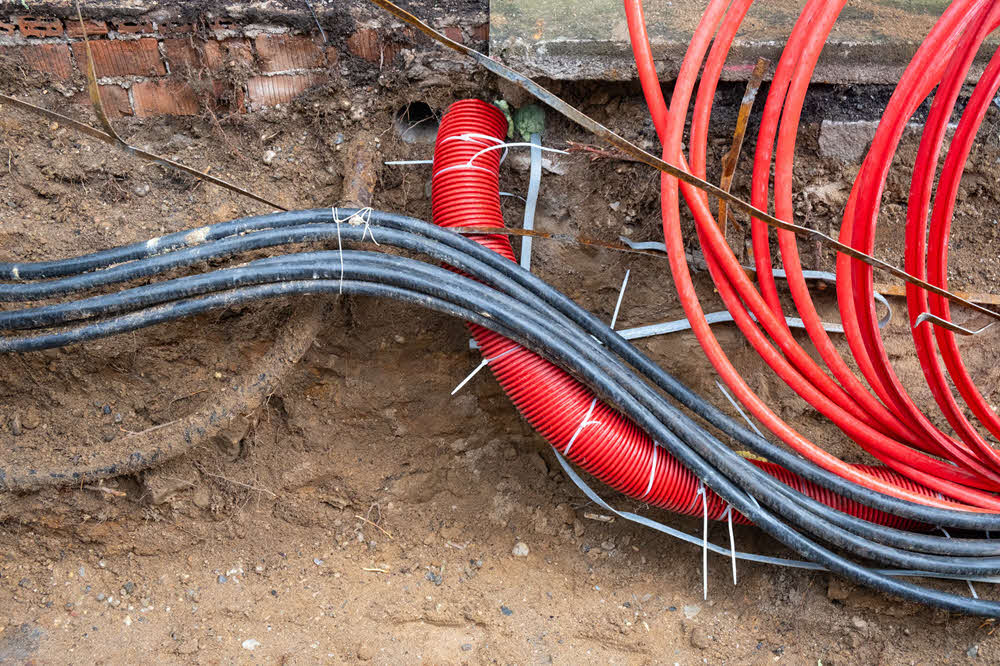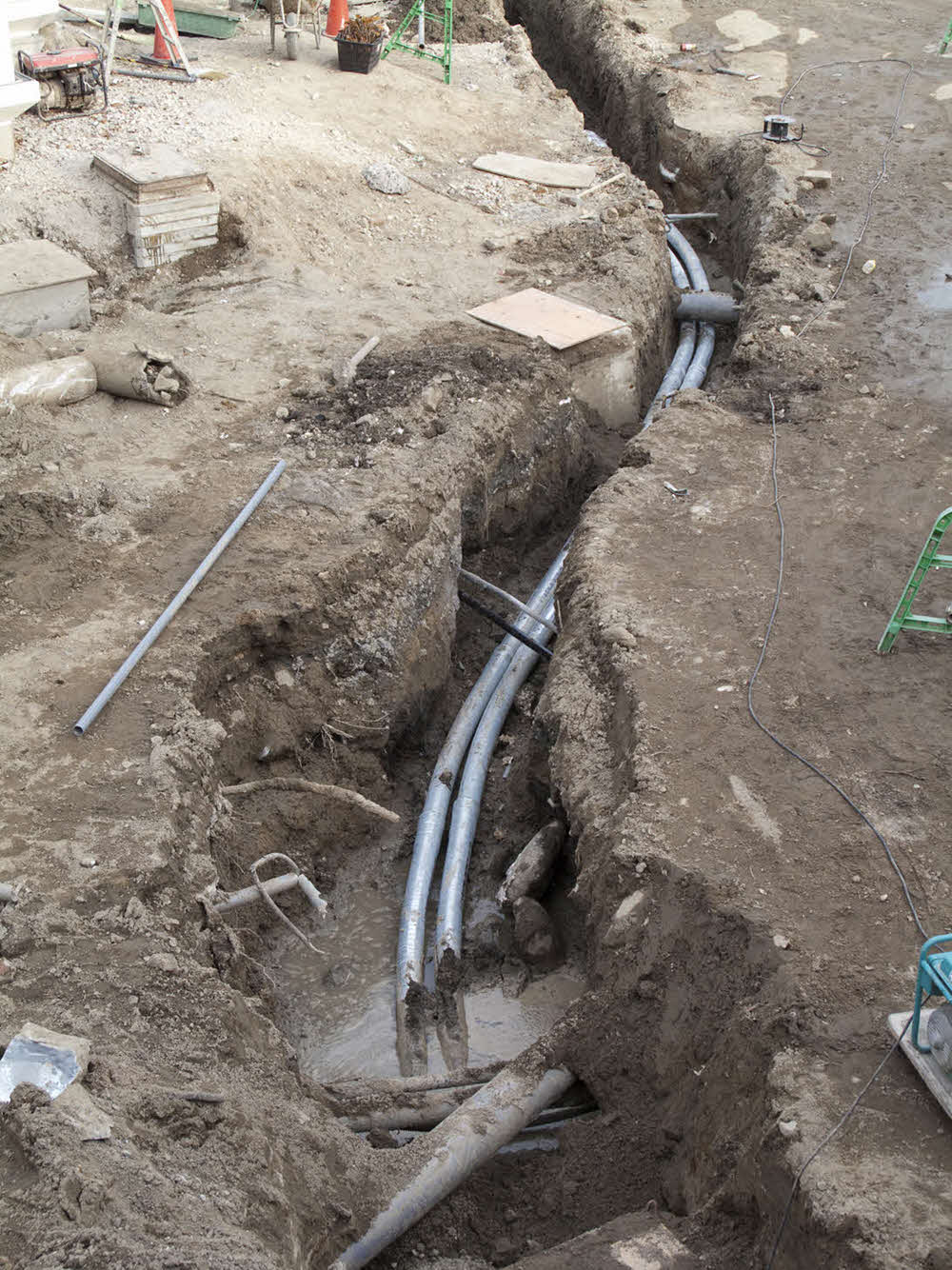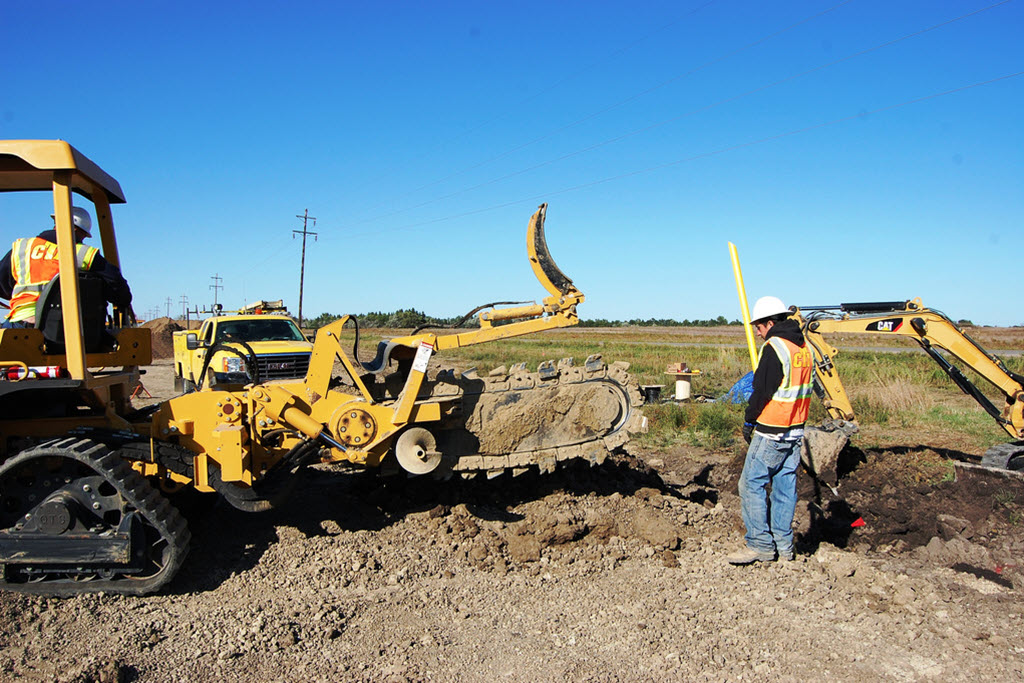Electrical Conduit Servicesin Richmond MI
Expert Conduit Installation to Support Electrical and Data Systems
We Are Locally Owned & Operated For Over 37 Years
Contact Us Today!
We Serve Businesses In And Around The Following Cities:
About Electrical Conduit Services
Understanding the Importance of Conduit for Electrical Underground Installations in Commercial Properties in Richmond
The cityscape of Richmond is a testament to the growth and potential of development in commercial real estate. One important aspect of the development process often overlooked is the implementation of a Conduit for Electrical Underground installations. Ensuring reliable and secure wiring throughout a building is a critical aspect in modern architecture and construction. This process involves the use of a series of tubes or pipes, referred to as conduits, to help protect and route electrical wiring. As a fundamental but hidden part of infrastructure, conduits play a significant role in the smooth and effective operation of any commercial property. With an understanding of the process, benefits, and real-world applications of underground conduit installation, property developers can make better-informed decisions.
The Process of Installing Underground Electrical Conduit
The process begins with a critical decision – selecting the type of conduit to be used. PVC conduit for underground wiring has emerged as the popular choice, given its ability to withstand the ground conditions, remain unaffected by corrosive substances, and its relative ease in installation. This is followed by careful planning of the trenching for the electrical conduit. The depth of the trench should be at least 18 inches to ensure safety and durability, while also making sure that running electrical wires are not in close proximity to gas lines. Finally, the most critical step is the running of underground electric lines through the installed conduit.
D&J Contracting are stalwarts in this process, with a reputation built on consistent high-quality service delivery all around Richmond. Their expertise in running wire in conduit underground and understanding of local construction rules and guidelines makes them the ideal choice for the job.
Advantages of Conduit for Electrical Underground
Opting for an underground electrical conduit in a commercial property brings with it a host of benefits. A key benefit lies in the protection it offers – not just from physical damage, but also from fire hazards, rodents and even inclement weather conditions. Additionally, underground conduit installations provide an uncluttered aesthetically pleasing environment as it eliminates both visible and overhead wiring.
Another significant advantage identifies with its flexibility for future expansions or repairs. As the wiring is run through conduits, it allows for easy replacement or upgrades of the electrical system without the need to dig new trenches. This not only saves time and money but also leads to minimum disruption of the day-to-day operations of a commercial property.
Real-world Applications and Insights
Across Richmond, one can witness the effective use of electrical conduit trenching in a variety of commercial settings. From modern office facilities to retail complexes and even sprawling warehouses, underground conduit installations play a pivotal role in ensuring a robust infrastructure. A standout case can be seen in the newly refurbished shopping center downtown. D&J Contracting was entrusted with the massive task of installing PVC conduit underground for over 200 retail outlets in the facility. Their effective management of the task, with an unbroken record of safety and efficiency, highlights the competency and the real-world application of the procedure.
Anyone looking to invest in a commercial property in Richmond should prioritize the underground electrical service in their design plans. As regulations grow stricter, and space becomes increasingly precious, the use of underground conduit improves safety, aesthetics, and utility, while being cost-effective in the long run. Looking at the successful real-world applications, and the many benefits, it is clear that this could be a considerable path to success for commercial property owners and developers in Richmond.
Why Choosing D&J Contracting is a Wise Decision
It is critical to find a reliable and experienced partner when it comes to running an underground power to your property. D&J Contracting has repeatedly proven their proficiency in Richmond by successfully carrying out several projects involving running underground electrical service. Their exemplary work in installing PVC conduit underground highlights their specialty in the process. Commitment to quality, safety, and professionalism, has made D&J Contracting a go-to service provider for any kind of electrical conduit trenching challenges in the city.
As we take stock of the importance of conduit for electrical underground in commercial properties, it becomes abundantly clear that not only does this process enhance the safety and utility of a property, but it also represents a foresighted approach towards efficient and future-proofed development. Now more than ever, Richmond’s commercial properties benefit from the exemplary work provided by experienced contractors like D&J Contracting, showcasing that this city truly acknowledges the power under its feet.
Electrical Conduit Services Gallery


Call Us Today to receive your Free Quote for
Conduit For Electrical Underground in Richmond
Serving: Richmond, Michigan

About Richmond, Michigan
In 1835, Erastus Beebe set out with two brothers and several other people to create a new city out of a wilderness area in Michigan. He founded Beebe’s Corners, which in 1878 agreed to join with the two nearest neighboring communities of Ridgeway and Cooper Town to form the village of Richmond. In 1879, the Michigan Legislature officially created the village charter. In 1989, the city annexed the Muttonville area of Lenox Township, parts of Richmond Township in Macomb County, and part of Casco and Columbus Townships in St. Clair County.
Richmond is 38 miles (61 km) northeast of downtown Detroit, 16 miles (26 km) northeast of Mount Clemens, the Macomb county seat, and 26 miles (42 km) southwest of Port Huron, the St. Clair county seat. Highway M-19 passes through Richmond as its Main Street, leading north 6 miles (10 km) to Memphis and south 7 miles (11 km) to New Haven.
The city is adjacent to Richmond Township and Lenox Township in Macomb County, although it is administratively autonomous. It is also adjacent to St. Clair County’s Columbus Township and Casco Township.
According to the United States Census Bureau, Richmond has a total area of 2.92 square miles (7.56 km), of which 2.89 square miles (7.49 km) are land and 0.03 square miles (0.08 km), or 1.16%, are water.
- Muttonville is in the southeastern part of the city on the boundary with adjacent Casco Township in St. Clair County at 42°47′47″N 82°44′07″W / 42.79639°N 82.73528°W. It was so named because it was the principal slaughterhouse for what was predominantly a sheep raising area.
| Census | Pop. | Note | %± |
|---|---|---|---|
| 1880 | 750 | — | |
| 1890 | 1,074 | 43.2% | |
| 1900 | 1,133 | 5.5% | |
| 1910 | 1,277 | 12.7% | |
| 1920 | 1,303 | 2.0% | |
| 1930 | 1,493 | 14.6% | |
| 1940 | 1,722 | 15.3% | |
| 1950 | 2,025 | 17.6% | |
| 1960 | 2,667 | 31.7% | |
| 1970 | 3,234 | 21.3% | |
| 1980 | 3,536 | 9.3% | |
| 1990 | 4,141 | 17.1% | |
| 2000 | 4,897 | 18.3% | |
| 2010 | 5,735 | 17.1% | |
| 2020 | 5,878 | 2.5% | |
| U.S. Decennial Census | |||
As of the census of 2010, there were 5,735 people living in the city. The population density was 2,012.3 inhabitants per square mile (777.0/km). There were 2,479 housing units at an average density of 869.8 per square mile (335.8/km). The racial makeup of the city was 94.2% White, 1.0% African American, 0.3% Native American, 0.2% Asian, 0.2% Pacific Islander, 2.6% from other races, and 1.5% from two or more races. Hispanic or Latino of any race were 4.6% of the population.
As of the census of 2000, there were 4,897 people, 1,977 households, and 1,332 families living in the city. The population density was 1,691.6 inhabitants per square mile (653.1/km). There were 2,062 housing units at an average density of 712.3 per square mile (275.0/km). The racial makeup of the city was 95.43% White, 0.25% African American, 0.31% Native American, 0.82% Asian, 0.18% Pacific Islander, 1.86% from other races, and 1.16% from two or more races. Hispanic or Latino of any race were 4.74% of the population.
There were 1,977 households, out of which 31.9% had children under the age of 18 living with them, 53.1% were married couples living together, 10.1% had a female householder with no husband present, and 32.6% were non-families. 27.8% of all households were made up of sole individuals and 11.0% had someone living alone who was 65 years of age or older. The average household size was 2.45 and the average family size was 2.99.
In the city the population was spread out, with 24.2% under the age of 18, 9.0% from 18 to 24, 30.8% from 25 to 44, 22.7% from 45 to 64, and 13.3% who were 65 years of age or older. The median age was 36 years. For every 100 females there were 92.1 males. For every 100 females age 18 and over, there were 89.6 males.
The median income for a household in the city was $43,378, and the median income for a family was $57,917. Males had a median income of $41,519 versus $26,445 for females. The per capita income for the city was $21,384. About 4.8% of families and 6.2% of the population were below the poverty line, including 7.2% of those under age 18 and 5.4% of those age 65 or over.
The Richmond Community School District covers areas of Richmond, Lenox, Casco, and Columbus townships. It includes an elementary, middle, and high school. In 2002, it had approximately 2,000 full-time students and a teacher/student ratio of 1:20. St. Augustine is a Catholic Elementary School in the city and St. Peter’s is a Lutheran Elementary School in the city.
Call Us Today to receive your Free Quote for
Conduit For Electrical Underground in Richmond
Related Services in Richmond, Michigan
We Serve Businesses In The Following Zip Codes:
48007, 48015, 48021, 48026, 48035, 48036, 48038, 48042, 48043, 48044, 48045, 48046, 48047, 48048, 48050, 48051, 48066, 48071, 48080, 48081, 48082, 48083, 48084, 48085, 48088, 48089, 48090, 48091, 48092, 48093, 48098, 48099, 48225, 48230, 48236, 48310, 48311, 48312, 48313, 48314, 48315, 48316, 48317, 48318, 48397